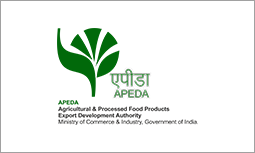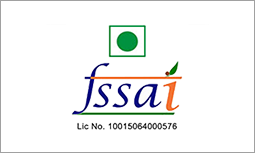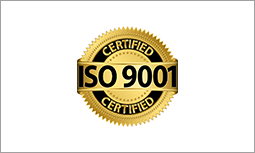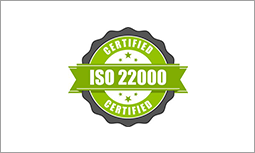APEDA:
It is mandatory for all the agricultural exporters to have an APEDA certificate for carrying out the export of scheduled agri-products. The Agricultural and Processed Food Products Export Development Authority (APEDA) was established by the Government of India under the Agricultural and Processed Food Products Export Development Authority Act passed by the Parliament in December, 1985. APEDA is an autonomous organization attached to the Ministry of Commerce. The main function of APEDA is to build bond between Indian producers and the global markets. APEDA undertakes counseling and briefing of potential sources on government policy and procedures.
FSSAI:
FSSAI name as Food Safety and Standards Authority of India. It plays an important role in controlling food quality. And ensure safety for customer satisfaction. Even, it deals in manages food manufacturing, processing, distribution, and storage. FSSAI license for Export shows that your products are safe, according to standards of FSSAI and can be consumed as it will not cause any ill effect on your health. Indian food products are well sold and exported to foreign countries and their markets. They love to have our traditional foods.
PPQS:
To advise and assist the union government on all matters including international obligations related to plant protection. To keep watch and control over locust in scheduled desert area. Human resource development in plant protection technology. Monitoring pesticides' residues at national level. Directorate of Plant Protection Quarantine & Storage was established in the year 1946 on the recommendation of Woodhead Commission as an apex organization for advising the Government of India and state governments on all the matter related to Plant Protection. The Directorate is headed by Plant Protection adviser. Plant Protection strategy and activities have significant importance in the overall crop production programmes for sustainable agriculture. It is an attached Office of Ministry of Agriculture and Farmers Welfare.





ISO 9001:
ISO 9001 is defined as the international standard that specifies requirements for a quality management system (QMS). Organizations use the standard to demonstrate the ability to consistently provide products and services that meet customer and regulatory requirements. It is the most popular standard in the ISO 9000 series and the only standard in the series to which organizations can certify. ISO 9001 was first published in 1987 by the International Organization for Standardization (ISO), an international agency composed of the national standards bodies of more than 160 countries. The current version of ISO 9001 was released in September 2015.
ISO 22000:
ISO 22000 sets out the requirements for a food safety management system and can be certified to it. It maps out what an organization needs to do to demonstrate its ability to control food safety hazards in order to ensure that food is safe. There is an international standard that is intended to be used within the food industry called ISO 22000. It allows organizations to understand what traditional quality assurance and preventive food safety measures should be implemented within their industry.